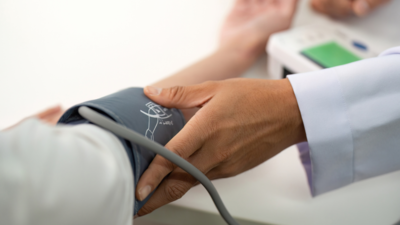5 reasons why blood pressure rises in winters and tips for prevention

Hypertension or high blood pressure is a prevalent health disorder that affects millions and people of all walks of life. Though it is said to strike at any age or at any time of the year, winters pose a special set of problems to individuals with high Blood pressure. Cold weather not only bring chills, but it also impacts the body in many ways. During winters, blood vessels tighten, raising blood pressure levels and adding additional stress on heart. Comprehending high blood pressure during winters is important to avoid complications like heart attacks, strokes, and kidney issues.
Reasons why winters influence blood pressure: Risk factors

As per PubMed Central, in a study under the heading, ‘Winter Hypertension: Potential mechanisms’, It includes various factors that cause winter hypertension:Temperature and BP: Cold temperature is correlated with increased blood pressure, whereas warm temperature lowers BP. Both systolic and diastolic blood pressure and bp increase as ambient and indoor temperature decreasesMechanisms: Cold activates sympathetic nervous system and increases endothelial changes and elevates peripheral resistance and bp, hence higher temperatures could enhance vascular function.Vitamin D: Seasonal declines in vitamin D level in winter are associated with increased BP. Vitamin D inhibits renin-angiotensin system activity, enhances vascular function and lowers hypertension risk.Hormones: Hormones like norepinephrine, epinephrine and aldosterone, affect BP. Cold exposure elevates all these hormones, which leads to BP surges.Air pollution: PM 2.5 AND PM10 and ozone concentrations in winter, causes vasoconstriction, oxidative stress and inflammation all contributes to high BP.
Common signs of high blood pressure during winters

Unlike other conditions, hypertension appears quietly and a few signs become noticeable in the winter:Headaches and dizziness:One of the most familiar symptoms of high blood pressure is a constant headache, particularly at the back of the head, and in the temples. Dizziness leads to cold-induced alterations in blood vessels resulting in blood pressure swings.Cold hands and feetDuring winters, reduced blood supply to the vessels may cause numb tingling feeling in extremities. Although prevalent among most individuals, it can indicate poorly regulated blood pressure, that is susceptible to hypertension.Shortness of breathHigh blood pressure places greater workload on the heart, becoming more difficult to circulate the blood effectively. Cold air, particularly in winter, can make the strain worse, resulting in shortness of breath or a sensation of chest tightness.FatigueAn unexpected change in temperature or season can aggravate the fatigue in individuals who have high Bp. Being tired now and then is a different issue, but getting weak, could be a sign that the heart is working too hard, due to cold.Chest pain or palpitationsUnpredicted chest pain, tightness, or abnormal heart rhythms may be warning signs of hypertension complications. Cold climatic conditions heighten the chances of heart-related complications, so these symptoms need to be watched closely.Health tips for managing high blood pressure during winters

Be mobile: Even mild indoor exercises, particularly if one is into yoga, can promote blood flow and decrease Blood pressureMaintain a balanced diet: Avoid excessive salt and stick to fruits, vegetables and cereals.Stay warm: Dress in layers, don’t stay cold for too long.Deal with stress: Depression can increase blood pressure. Meditation, deep breathing or consulting with a therapist can do the job equally wellAdhere to a physician’s guidance: Use prescribed medications regularly and consult about any seasonal adjustments with a physician.When to get medical attentionIf you experience severe headaches, chest pain, shortness of breath, change in vision, or recurring nosebleeds, immediately go to the doctor. Early intervention in winter may avoid serious cardiovascular complications.





